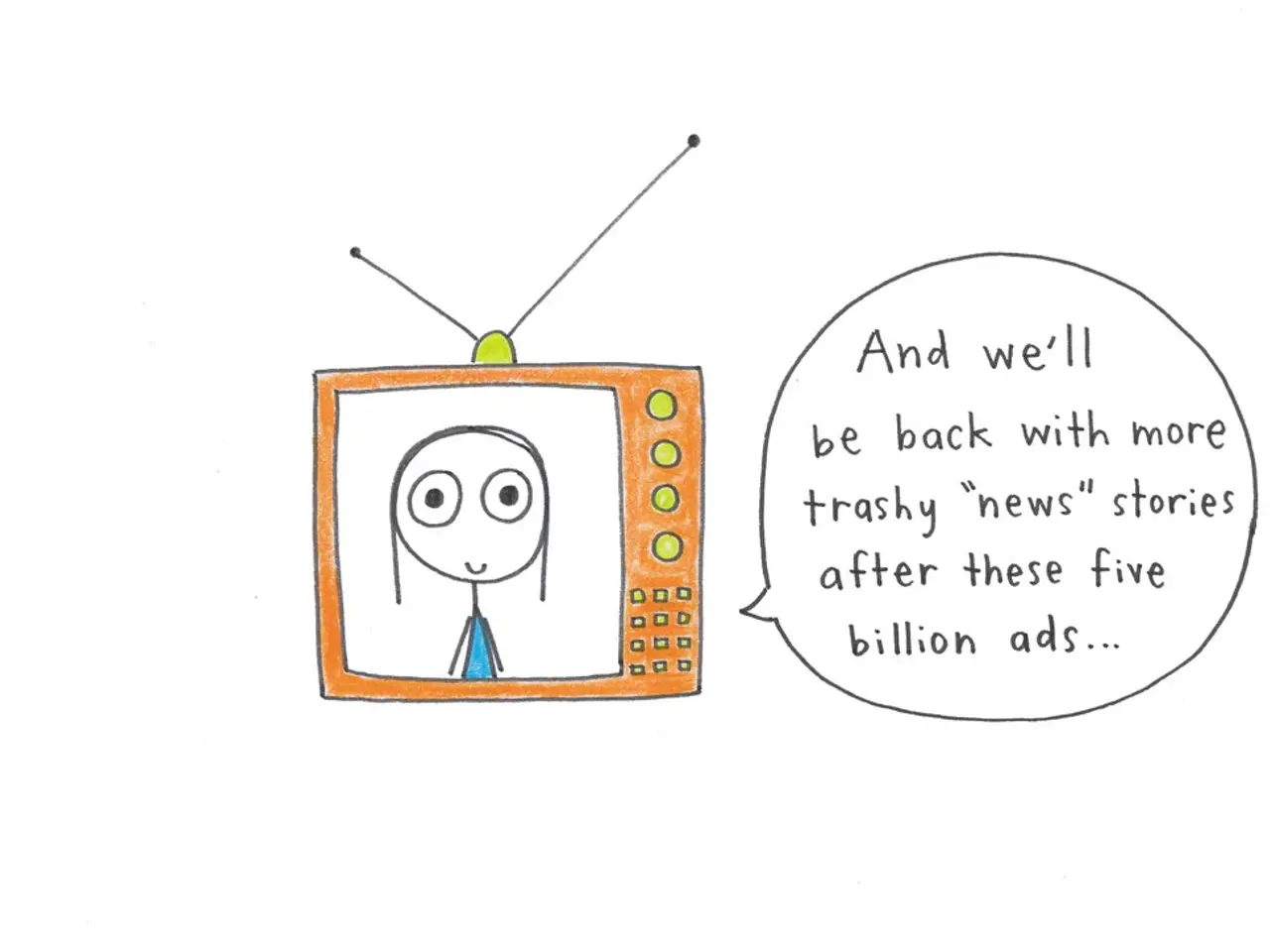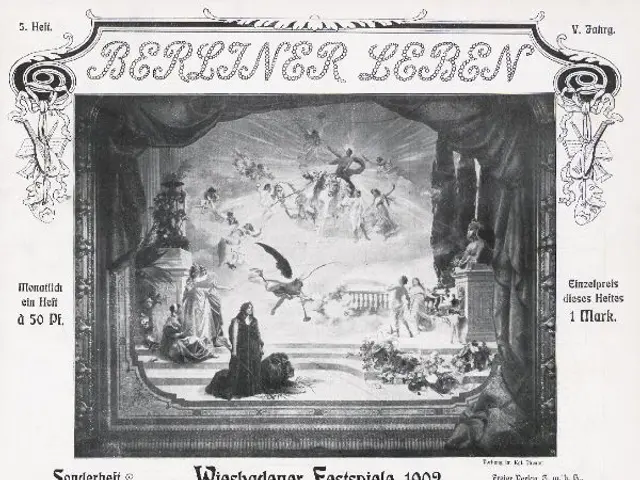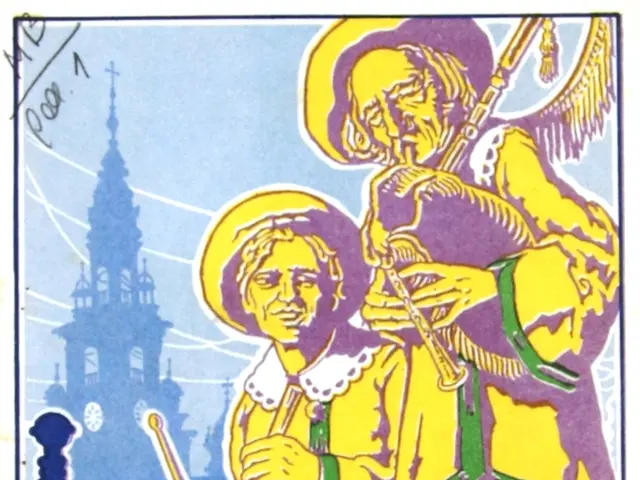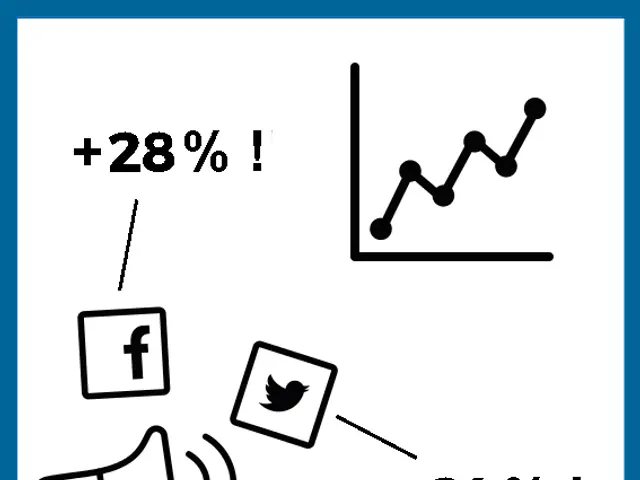Comic artists express disapproval over censorship following the removal of their content by Kimmel
In a surprising turn of events, the world of late-night television has been rocked by accusations of a crackdown on free speech under the Trump administration.
On Thursday, Seth Meyers, host of NBC's Late Night, voiced his concerns about the administration's alleged pursuit of such a crackdown at home. His comments came in response to President Trump's criticism of evening shows on network television, including ABC's Jimmy Kimmel Live!
The controversy reached a boiling point when Kimmel's show was suspended. The person indirectly involved in threatening ABC's licenses was Brendan Carr, the chairman of the Federal Communications Commission (FCC), who acted under the Trump administration's pressure and threatened regulatory actions against ABC due to Kimmel's comments on the Charlie Kirk assassination.
Comedy Central's Jon Stewart, in a show of solidarity, introduced himself as the "patriotically obedient host" of the "all-new government-approved Daily Show." Meanwhile, Jimmy Fallon, host of The Tonight Show, praised Kimmel, expressing hope for his return and promising to cover the president's trip to the UK as usual.
Stephen Colbert, host of The Late Show on CBS, expressed his support for Kimmel, stating ABC's decision as blatant censorship. However, CBS claimed the cancellation of Colbert's program was a purely financial decision. Colbert's show was cancelled shortly after he criticized CBS's parent company for settling a lawsuit brought by Trump.
The FCC chairman, Brendan Carr, stated that the media ecosystem is experiencing a "very disruptive moment" and that more changes are to come. Trump urged Carr to consider revoking ABC's license, a suggestion that was met with criticism from late-night legends like David Letterman, who called the ABC decision to suspend Kimmel "ridiculous."
Letterman also stated that it's not acceptable to fire someone due to fear or an attempt to appease an authoritarian administration. He hinted at the administration's concerns about speech being a cynical ploy to consolidate power.
Fox News host Greg Gutfeld, however, argued that Kimmel was not being "censored," but some believe it's an excuse to unload him due to poor ratings and cost. Interestingly, linear ad spending for late-night segments on ABC, CBS, and NBC nearly halved between 2018 and 2024, falling from $439 million to $221 million.
The controversy extended to Trump's Truth Social platform, where he urged NBC to remove satirists Jimmy Fallon and Seth Meyers. A voiceover was played on The Tonight Show calling Trump "incredibly handsome." However, Trump warned that giving in to the regime would be naive, while Colbert warned against appeasing an authoritarian administration.
David Letterman concluded by stating that it's not acceptable to fire someone due to fear or an attempt to appease an authoritarian administration. Jon Stewart also hinted at the administration's concerns about speech being a cynical ploy to consolidate power. The future of free speech in late-night television remains uncertain, but one thing is clear: the current events have sparked a heated debate about the balance between free speech and political pressure.
Read also:
- Late-night host Lawrence O'Donnell responds to Jimmy Kimmel's departure with a discussion on a subject "Donald Trump doesn't wish us to examine"
- EU Member States cast their decisions
- Eighteen-Year-Old Speaks Out Against Lowering Voting Age to Sixteen
- King Charles's body language analyst dissects signs of apparent 'impatience' exhibited by Charles towards Trump








